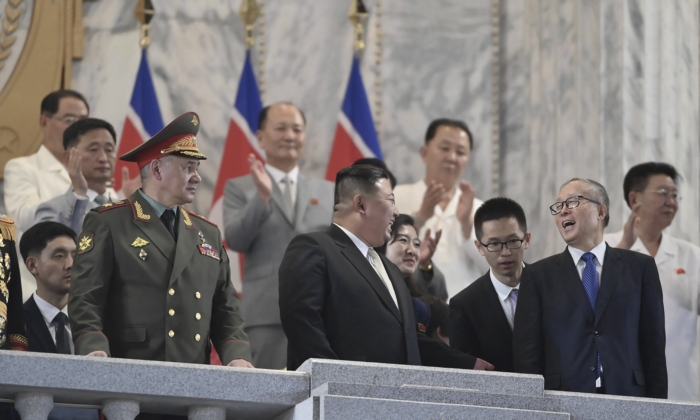Commentary
The discovery that the Chinese regime is behind the U.S. fentanyl crisis showcases the asymmetric warfare tactics employed by the Chinese Communist Party (CCP) and its allies. Asymmetric warfare includes unconventional weapons, proxy warfare, guerrilla tactics, terrorism, civilian shields, information warfare, disinformation campaigns, and cyberwarfare to disrupt adversaries.
In addition to asymmetric warfare, the CCP engages in coalition building as part of its Great Power competition with the United States. The relationship between Beijing and Moscow has strengthened, with China providing economic support to Russia and military equipment.
The CCP and its allies excel in asymmetric warfare, utilizing economic leverage, cyberwarfare prowess, disinformation campaigns, and missile capabilities to challenge the U.S. without direct military conflict. These tactics pose a significant challenge to the U.S., which has traditionally focused on conventional warfare.
Concrete examples of asymmetric warfare include proxy armies in Syria, Iraq, Yemen, and Africa supported by Iran and Russia. Information warfare and cyberattacks are also prevalent in the efforts to disrupt the U.S.
The overarching goal of the U.S.-led bloc is to uphold the international rules-based order and expand its reach to developing nations and those transitioning to democracy. The CCP’s autocratic allies may present challenges in cooperation due to differing objectives and limited commonalities.
Leaders like Xi Jinping, Vladimir Putin, and Kim Jong Un have distinct goals that may conflict with each other, impacting the cohesion of the CCP-led bloc. Iran’s Islamic revolution ambitions in the Middle East may also clash with the interests of China and Russia.
The unity of the CCP-led bloc could weaken in the event of a war involving the U.S. and other actors, given China’s defense agreement with North Korea and its efforts to prevent conflicts that could draw in the U.S.
Russia’s actions in Ukraine could potentially lead to NATO involvement if they were to extend their activities into Poland. While this could have negative consequences for Moscow, a conflict between the United States and Russia could provide strategic opportunities for Tehran and Beijing to advance their own agendas.
The possibility of the conflict escalating into a full-scale military confrontation remains uncertain. However, it is evident that the CCP-led bloc will continue to engage in asymmetric warfare, disinformation campaigns, proxy wars, and other tactics to undermine U.S. influence without directly provoking a war.
Please note that the views expressed in this article are the opinions of the author and may not necessarily reflect those of The Epoch Times.
Source link






